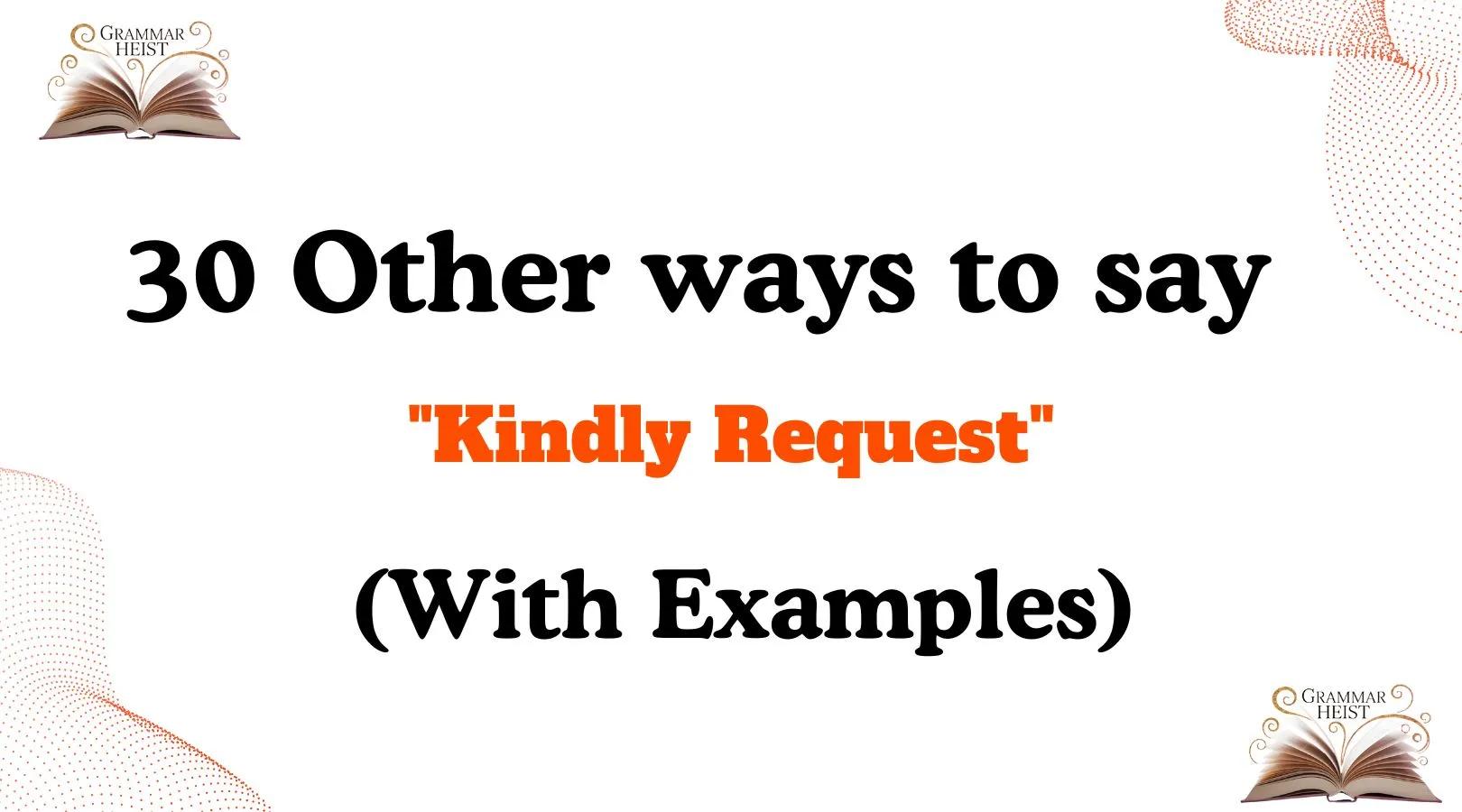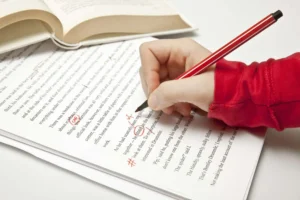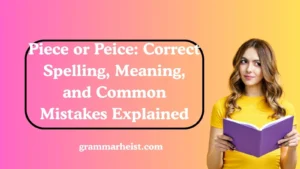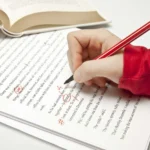When communicating with others, the words we choose can make a huge difference in how our message is received. Expressing ourselves with warmth, care, and thoughtful phrasing helps create a positive atmosphere. In this article, we’ll explore 30 alternative ways to say “kindly request” that can make your messages feel more personal, respectful, and meaningful. These alternatives are perfect for anyone looking to elevate their communication style and connect with others in a more considerate and empathetic way.
Is It Professional/Polite to Say “Kindly Request”?
Using “kindly request” can often be seen as formal and polite, but there are times when a more casual or specific phrase might work better depending on the context. It’s essential to tailor your language to match the tone you want to convey.
Pros or Cons
Pros:
- Politeness: It adds a touch of professionalism and consideration.
- Respect: Shows regard for the other person’s time and effort.
- Clarity: The recipient understands your request clearly.
Cons:
- Formality: In casual or familiar settings, it might feel too stiff.
- Overuse: If used too frequently, it might sound insincere.
- Length: Sometimes, shorter, direct phrases work better.
Synonyms & Alternatives for “Kindly Request”
- “Respectfully ask”
- “Would you please”
- “May I request”
- “I would appreciate it if”
- “Please be advised”
How to Say It in Different Ways
- Formal: “I would like to formally request your approval.”
- Casual: “Can I ask you for a quick favor?”
- Supportive: “If it’s not too much trouble, could you help with this?”
- Heartfelt: “I’d really appreciate your help with this.”
- Neutral: “I’m reaching out to request your assistance.”
Professional Ways to Say “Kindly Request”
- “I would like to request your feedback on the document.”
- “May I kindly ask for your approval on this matter?”
- “Please review the attached file at your earliest convenience.”
- “I would appreciate your prompt attention to this request.”
- “Could you please confirm receipt of this message?”
Formal Ways to Say “Kindly Request”
- “I hereby request your consideration on the following.”
- “I would like to formally seek your approval.”
- “May I respectfully request your assistance in this matter.”
- “Please accept this as a formal request for your review.”
- “Your attention to this request will be greatly appreciated.”
Informal Ways to Say “Kindly Request”
- “Hey, could you do me a favor?”
- “Mind helping me out with this?”
- “Would you take a look when you get a chance?”
- “Can you send that over for me?”
- “Could you please help me with that real quick?”
What “Kindly Request” Means
- It’s a polite way to ask for something without sounding demanding.
- Common in emails, letters, and official messages.
- Reflects professionalism and respect.
- Helps maintain good tone and courtesy in formal communication.
- Suitable for both written and spoken requests.
How to Respond to “Kindly Request”
- “Of course, I’ll take care of it.”
- “Sure, I’ll handle that right away.”
- “Happy to help.”
- “Consider it done.”
- “I’ll get back to you shortly with that information.”
Synonyms For “Kindly Request”
- Would you be so kind as to…
- May I ask you to…
- I would appreciate it if you could…
- Would you mind…
- Could I trouble you to…
- Would you be willing to…
- I would be grateful if you could…
- Would you kindly…
- If it’s not too much trouble, could you…
- I would be thankful if you could…
- Could you please…
- Would it be possible for you to…
- I was wondering if you could…
- Could you kindly…
- I would love it if you could…
- Would you be able to…
- Could I ask you for your assistance in…
- I would be much obliged if you could…
- I humbly request…
- Could I ask you for a favor?
- Would you mind doing me a favor and…
- I would really appreciate it if you could…
- Would it be too much to ask if you could…
- Do you mind if I ask you to…
- Would you be open to helping with…
- Can I ask you to…
- I would consider it a favor if you could…
- If you have a moment, could you…
- Would you be so generous as to…
- I was hoping you could…
1. “Would you be so kind as to…”
Scenario: You’re asking a colleague to complete a task for you.
Examples:
- “Would you be so kind as to send me the report by end of day?”
- “Would you be so kind as to provide your feedback on this draft?”
- “Would you be so kind as to confirm the meeting time?”
Tone: Warm, polite, considerate
Explanation: This phrase is very polite and conveys a sense of gentleness. It’s often used in professional and formal situations, but it can work in a more personal context as well.
2. “May I ask you to…”
Scenario: You are requesting a favor from a friend.
Examples:
- “May I ask you to bring the documents when you come?”
- “May I ask you to reconsider your decision?”
- “May I ask you to handle this task for me?”
Tone: Polite, soft, respectful
Explanation: This expression is often used to politely ask for something, without sounding too demanding or forward. It works well in both formal and informal settings.
3. “I would appreciate it if you could…”
Scenario: You’re asking a team member to contribute their ideas during a meeting.
Examples:
- “I would appreciate it if you could share your insights on the project.”
- “I would appreciate it if you could provide a quick update.”
- “I would appreciate it if you could handle this task for me.”
Tone: Grateful, respectful, appreciative
Explanation: This phrase conveys gratitude, implying that you value the person’s help. It also softens the request, making it feel more like a favor than a demand.
4. “Would you mind…”
Scenario: You are requesting a small favor from a neighbor.
Examples:
- “Would you mind lending me your lawnmower for a few days?”
- “Would you mind passing me that book on the shelf?”
- “Would you mind helping me with this task?”
Tone: Casual, considerate, polite
Explanation: This alternative is more informal and works well when you don’t want to seem too rigid in your request. It gives the person an easy opportunity to say no without feeling pressured.
5. “Could I trouble you to…”
Scenario: You need assistance from a senior colleague.
Examples:
- “Could I trouble you to review this document before I send it?”
- “Could I trouble you to attend the meeting on my behalf?”
- “Could I trouble you to help me with this problem?”
Tone: Respectful, humble, considerate
Explanation: This phrase communicates respect and acknowledges that you’re asking for someone’s time or effort, which makes it ideal for formal or polite requests.
6. “Would you be willing to…”
Scenario: You’re asking for a favor in a polite manner.
Examples:
- “Would you be willing to help me with this presentation?”
- “Would you be willing to assist with the event preparation?”
- “Would you be willing to adjust the meeting time?”
Tone: Friendly, respectful, gentle
Explanation: This alternative is ideal when you want to express that you’re not demanding but simply inquiring about the other person’s availability or willingness.
7. “I would be grateful if you could…”
Scenario: You’re asking someone to review a piece of work.
Examples:
- “I would be grateful if you could provide feedback on this report.”
- “I would be grateful if you could approve the final version.”
- “I would be grateful if you could assist me with this task.”
Tone: Formal, polite, thankful
Explanation: This phrase is often used in professional settings, signaling that you value the person’s time and effort in fulfilling your request.
8. “Would you kindly…”
Scenario: You’re making a polite request for assistance.
Examples:
- “Would you kindly complete this task by tomorrow?”
- “Would you kindly provide me with your availability?”
- Would you kindly let me know your thoughts on this proposal?
Tone: Formal, respectful, considerate
Explanation: This is a more formal version of “kindly request” and is often used in emails or official communication.
9. “If it’s not too much trouble, could you…”
Scenario: You are asking a colleague for a small favor.
Examples:
- “If it’s not too much trouble, could you send me the document?”
- “If it’s not too much trouble, could you spare a few minutes to help?”
- “If it’s not too much trouble, could you pick up my mail?”
Tone: Humble, polite, considerate
Explanation: This phrase acknowledges that the request might require effort, showing that you’re conscious of the other person’s time and resources.
10. “I would be thankful if you could…”
Scenario: You are requesting someone’s help with an important matter.
Examples:
- “I would be thankful if you could help me prepare for the meeting.”
- I would be thankful if you could confirm the appointment time.”
- “I would be thankful if you could assist with the project.”
Tone: Grateful, polite, appreciative
Explanation: This expression focuses on gratitude, making it feel more like a heartfelt thank you rather than just a request.
11. “Could you please…”
Scenario: You are requesting a quick favor from a co-worker.
Examples:
- “Could you please send me the latest file?”
- “Could you please arrange the meeting for next week?”
- “Could you please help me understand this concept?”
Tone: Polite, professional, direct
Explanation: This alternative is widely used in professional settings, as it conveys respect while also being clear and direct in its request.
12. “Would it be possible for you to…”
Scenario: You are asking someone for help on a specific task.
Examples:
- “Would it be possible for you to cover the meeting for me?”
- “Would it be possible for you to review the document by Friday?”
- “Would it be possible for you to extend the deadline?”
Tone: Polite, respectful, considerate
Explanation: This phrase is formal and can be useful when you want to soften a request, 13. “I was wondering if you could…”
Scenario: You’re making a polite request for assistance.
Examples:
- “I was wondering if you could provide me with more details.”
- “I was wondering if you could help me with the task.”
- “I was wondering if you could clarify that for me.”
Tone: Casual, friendly, respectful
Explanation: This phrase works well in informal settings and gives the recipient the impression that you’re simply asking out of curiosity or consideration.
14. “Could you kindly…”
Scenario: You are asking for something politely.
Examples:
- “Could you kindly share the report with me?”
- “Could you kindly respond to my inquiry?”
- “Could you kindly assist me with this?”
Tone: Formal, polite, respectful
Explanation: Slightly more formal, this phrase maintains the respect of “kindly” while being direct and to the point.
15. “I would love it if you could…”
Scenario: You are asking a friend to join an event with you.
Examples:
- “I would love it if you could come to the party this weekend.”
- “I would love it if you could help me decorate the venue.”
- “I would love it if you could join us for dinner.”
Tone: Warm, friendly, inviting
Explanation: This phrase expresses a genuine, enthusiastic request. It’s perfect when you want to make the person feel welcomed and appreciated.
16. “Would you be able to…”
Scenario: You need someone’s help to complete a task.
Examples:
- “Would you be able to finish the presentation by tomorrow?”
- “Would you be able to help me with this research?”
- “Would you be able to review my work for me?”
Tone: Polite, respectful, gentle
Explanation: This alternative is a softer way to ask for help without demanding it, allowing the person to politely decline if necessary.
17. “Could I ask for your assistance in…”
Scenario: You’re seeking help with a task or project.
Examples:
- “Could I ask for your assistance in preparing the materials?”
- “Could I ask for your assistance in organizing the event?”
- “Could I ask for your assistance with this issue?”
Tone: Formal, polite, respectful
Explanation: This phrase is ideal for professional contexts and conveys a request for help with a tone of respect and appreciation.
18. “I would be much obliged if you could…”
Scenario: You are asking a superior for a favor.
Examples:
- “I would be much obliged if you could approve the proposal.”
- “I would be much obliged if you could review the contract.”
- “I would be much obliged if you could take a look at this issue.”
Tone: Very formal, respectful, appreciative
Explanation: This alternative is used to convey gratitude in a very formal context, showing that you greatly value the person’s help.
19. “I humbly request…”
Scenario: You are making a formal request.
Examples:
- “I humbly request that you review this document.”
- “I humbly request your presence at the meeting.”
- “I humbly request that you take the time to assist me.”
Tone: Very formal, respectful, humble
Explanation: This phrase is appropriate for formal, respectful contexts, emphasizing humility and politeness.
20. “Could I ask you for a favor?”
Scenario: You are asking a colleague to help you with a task.
Examples:
- “Could I ask you for a favor and help me with this project?”
- “Could I ask you for a favor and review my report?”
- “Could I ask you for a favor and cover for me in the meeting?”
Tone: Casual, polite, friendly
Explanation: This is a great way to casually ask for help while also showing consideration and respect for the person’s time.
21. “Would you mind doing me a favor and…”
Scenario: You need assistance with a simple task.
Examples:
- “Would you mind doing me a favor and sending me that link?”
- “Would you mind doing me a favor and picking up the package?”
- “Would you mind doing me a favor and helping with the presentation?”
Tone: Casual, respectful, considerate
Explanation: This phrase is friendly and polite, without being overly formal. It provides an easy way to make requests without sounding demanding.
22. “I would really appreciate it if you could…”
Scenario: You’re asking someone for help with something important.
Examples:
- “I would really appreciate it if you could complete this by tomorrow.”
- “I would really appreciate it if you could help me finish this task.”
- “I would really appreciate it if you could lend me a hand.”
Tone: Appreciative, polite, friendly
Explanation: This phrase adds a personal touch and conveys gratitude, making it feel more like a favor and less like a demand.
23. “Would it be too much to ask if you could…”
Scenario: You’re politely requesting a favor from someone.
Examples:
- “Would it be too much to ask if you could help with this?”
- “Would it be too much to ask if you could send me the report?”
- “Would it be too much to ask if you could extend the deadline?”
Tone: Gentle, respectful, considerate
Explanation: This alternative conveys a high level of respect for the person’s time and effort, making the request feel less like an imposition.
24. “Do you mind if I ask you to…”
Scenario: You’re asking for help in a non-urgent matter.
Examples:
- “Do you mind if I ask you to send me those files?”
- “Do you mind if I ask you to help me with this task?”
- “Do you mind if I ask you to give me a hand with this?”
Tone: Casual, polite, friendly
Explanation: This phrase is more conversational and works well when asking for a favor in a relaxed, friendly manner.
25. “Would you be open to helping with…”
Scenario: You’re gently requesting assistance on a project.
Examples:
- “Would you be open to helping with the upcoming project?”
- “Would you be open to helping me organize the event?”
- “Would you be open to reviewing this draft?”
Tone: Friendly, professional, polite
Explanation: This phrase is flexible and conveys a sense of openness rather than a demand, allowing the person to feel comfortable saying yes or no.
26. “Can I ask you to…”
Scenario: You need something completed by a colleague.
Examples:
- “Can I ask you to submit the report by Friday?”
- “Can I ask you to review this before I send it out?”
- “Can I ask you to assist me with this project?”
Tone: Direct, polite, respectful
Explanation: This is a simple and straightforward way of asking for help while maintaining politeness.
27. “I would consider it a favor if you could…”
Scenario: You’re requesting help from someone you respect.
Examples:
- “I would consider it a favor if you could assist me with this task.”
- “I would consider it a favor if you could send me the details.”
- “I would consider it a favor if you could join us for the meeting.”
Tone: Formal, respectful, appreciative
Explanation: This phrase shows that you would truly value the person’s assistance and considers it a favor, making the request feel more personal and meaningful.
28. “If you have a moment, could you…”
Scenario: You’re asking for someone’s time to complete a small favor.
Examples:
- “If you have a moment, could you send me the document?”
- “If you have a moment, could you help me organize the files?”
- “If you have a moment, could you answer a few questions?”
Tone: Casual, respectful, considerate
Explanation: This phrase is polite and understanding, acknowledging that the person may not have time to fulfill the request immediately.
29. “Would you be so generous as to…”
Scenario: You’re requesting a favor from a colleague.
Examples:
- “Would you be so generous as to assist me with this task?”
- “Would you be so generous as to lend me your expertise?”
- “Would you be so generous as to review this for me?”
Tone: Formal, respectful, kind
Explanation: This phrase adds an element of generosity to the request, making it feel more like an opportunity for the person to help.
30. “I was hoping you could…”
Scenario: You are hoping someone can help you with an important matter.
Examples:
- “I was hoping you could help me finalize the presentation.”
- “I was hoping you could attend the meeting tomorrow.”
- “I was hoping you could assist me with this task.”
Tone: Hopeful, polite, respectful
Explanation: This alternative conveys a sense of hope and optimism, making the request feel more personal and less like a command.
Conclusion
When crafting a request, the words you choose can make all the difference in how your message is received. Whether you are speaking formally or casually, there are many ways to express yourself with warmth and care. By using alternatives to “kindly request,” you can make your communication more personal, empathetic, and effective. Choose the phrase that best suits your relationship with the recipient and the tone you wish to convey. These 30 alternatives are just the start – experiment and find the one that works best for you!

Emma Brooke is a passionate advocate for effective communication and language mastery. As a dedicated professional in the field of grammar and writing, Emma brings a wealth of knowledge and expertise to those seeking to improve their linguistic skills. With a focus on clarity, precision, and style, Emma Brooke is committed to helping individuals refine their language use to communicate confidently and effectively.












